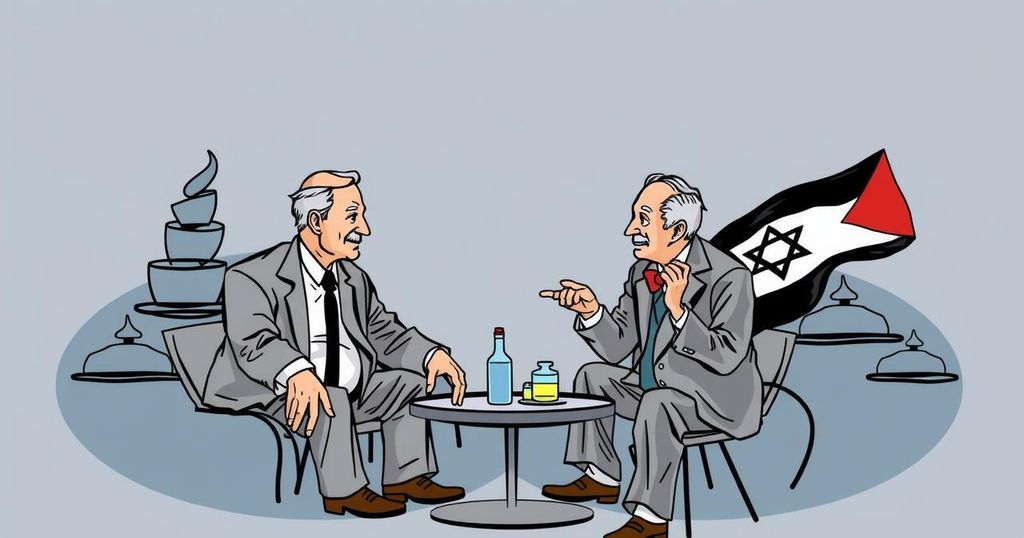Turkish FM Warns of Israel’s Plans Impacting Palestinian Migration and Regional Stability

Turkish Foreign Minister Hakan Fidan warned in a Hurriyet interview about Israel’s plans to encourage Palestinians to move to Egypt and Jordan, which could lead to greater instability in the region. Fidan also discussed the implications of Israeli military actions post-U.S. elections and the importance of a political framework for Syria’s internal dialogue and normalization. He noted challenges in ceasefire discussions with Hamas and the necessity of addressing these regional concerns.
In a crucial interview with Hurriyet, a widely respected Turkish publication, Turkish Foreign Minister Hakan Fidan expressed grave concerns regarding Israel’s intentions towards Palestinian Authority (PA) Arabs. He specifically highlighted fears that Israel is strategizing to encourage the relocation of Palestinians from the Gaza Strip and the West Bank to Egypt and Jordan, a move he believes could exacerbate regional instability. Fidan elaborated, stating, “Israel’s main goal is to force the Palestinian people from Gaza into Egypt and from the West Bank into Jordan,” underscoring the significant implications such actions may have on regional dynamics. Additionally, Fidan warned that after the U.S. elections, the actions of Israeli Prime Minister Benjamin Netanyahu may become more aggressive, including potential military operations targeting Iran’s nuclear capabilities. He stated, “If this happens, the risk will grow that the conflict will expand to other countries.” He dissected Netanyahu’s negotiation strategies, contending that the prime minister uses ceasefire discussions merely as a cover to gain time while pursuing military objectives. Speaking on the recent discussions concerning ceasefire between Israel and Hamas, Fidan conveyed a mixed sentiment, admitting that while some progress has been made, Hamas insists that any cessation of hostilities must lay the groundwork for significant changes in Israel’s approach. He noted, “At our last meeting with Hamas, we discussed the situation on the ground, a possible ceasefire, the need for humanitarian aid, and the intra-Palestinian reconciliation process.” Regarding Syria, Fidan noted that President Bashar Assad had shown no willingness to normalize relations with the Syrian opposition or Turkey, warning that the neglect of internal matters could lead to heightened instability. He stated that, “In this environment of deconflict, Turkey wants to see the Syrian regime and the opposition create a political framework on which they can agree.” As a response to recent remarks from Russian Foreign Minister Sergey Lavrov about renewing mediation efforts, Fidan reiterated that dialogue between the Syrian regime and opposition is paramount for stability in the region, indicating that, “Nevertheless, it appears that Assad and his allies are not yet willing to seek an agreement with the opposition, which hinders further normalization.”
The ongoing tensions in the Middle East, particularly involving Israel and Palestine, have persisted for decades, characterized by conflicts over territorial claims, national identity, and mutual recognition. The role of neighboring countries, such as Turkey and Syria, remains crucial as they engage in diplomatic discussions and negotiations aimed at resolving these longstanding issues. The Turkish Foreign Minister’s statements reflect Turkey’s strategic position and its vested interests in the regional balance of power, particularly concerning the Israeli-Palestinian conflict and the situation in Syria.
In conclusion, Turkish Foreign Minister Hakan Fidan has articulated significant concerns regarding Israel’s potential tactics aimed at increasing the emigration of Palestinians from the Gaza Strip and the West Bank. His insights into the Israeli military strategies and the complexities surrounding the ceasefire negotiations with Hamas highlight the delicate nature of the situation in the region. Furthermore, Fidan’s comments about the Syrian regime’s reluctance to engage in dialogue with opposition groups emphasize the broader regional instability that could arise if these issues remain unaddressed.
Original Source: www.jewishpress.com








